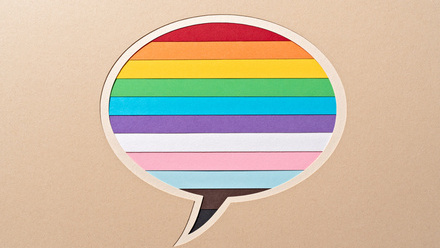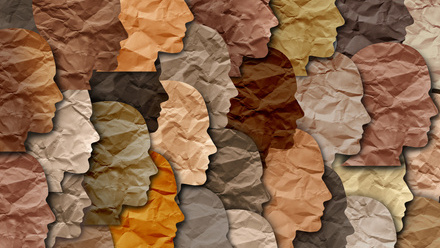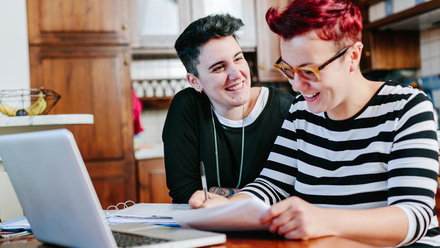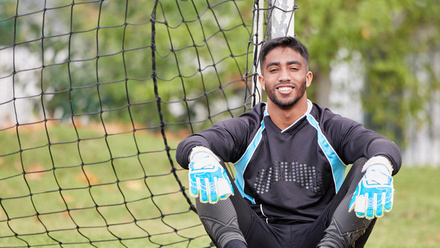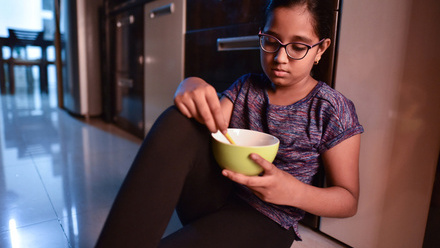As the doors of Ramadan are set to open, many Muslims across the United Kingdom and worldwide are preparing for the 30-day continuous fasting month. Ines Jabir gives advice on how to support colleagues and patients who might be observing Ramadan.
Ramadan is the ninth month of the Islamic year, following the lunar year. It can last 29-30 days and will conclude with Eid Al-Fitr (celebration of breaking the fast).
The month is characterised by added prayers, spiritual reflection, the spread of generosity, abundant donations and meal gatherings. This year, fasting time is projected to be between 14 hours and 16 hours, with an average window of nine hours open to consume food and drinks across the UK.
How are dietitians involved?
Dietitians are the only experts in nutrition with evidence-based advice for optimal health outcomes, particularly throughout metabolic changes. The advice needs to be tailored to the patient’s cultural or religious background with a professional awareness of determinants in nutrition and lifestyle. This is also significantly important to support Muslim colleagues and provide any support if needed throughout the month. However, what happens when we are fasting?
In summary, after 8-18 hours of fasting:
- Our blood glucose levels decrease
- The pancreas secretes glucagon
- Glycogenolysis occurs in the liver and kidneys, followed by gluconeogenesis
- Deaminated amino acids in the liver are used to make glucose and generate adenosine triphosphate (ATP), which leads to lipolysis
- Beta-oxidation for ATP production leads to Acetyl coenzyme A
What are the main meals in Ramadan?
Iftar (meal at dusk) and Suhoor (meal at dawn) are the two main meals. They can vary according to culture. Commonly, Muslims start with three dates (or an odd number) with a glass of water, following the Prophet’s example (peace be upon him).
Medical advice must be discussed with a multidisciplinary team before the beginning of Ramadan followed by medical discretion. Below are summarised various conditions and fasting recommendations created by the British Islamic Medical Association members. Refer to the full review for complete information.2
- Acute illness: to abstain from fasting if symptoms are causing hardship. Service users may consider terminating fasting with the following criteria:
- Prior experience of fasting with such illness
- Common knowledge
- The advice of the appropriate clinician
- Diabetes: people with type 1 diabetes and/or uncontrolled diabetes are strongly advised against fasting due to the increased risk of hypoglycaemia and hyperglycaemia3, 4
- Renal: low/moderate risk if stable CKD in stage 1 or 2
- Gastro: low/moderate risk if stable chronic liver disease without cirrhosis, stable IBD in remission, peptic ulcer disease or IBS
- Mental health: low/moderate risk in mild mental health illness not affecting functioning and well controlled mental illness with a history of safe fasting and no relapse in the past six months
Please note: some Muslim individuals who are chronically ill may choose to fast, although they are advised against it. This decision needs to be respected and the MDT needs to consider changes or adjustments to the treatment plan.
Key considerations during Ramadan for a healthy population:
- Ensure hydration through plenty of fluids:
- Soups
- Drinks: water, milk, tea, low sugar smoothies or juices
- Split liquids evenly as having a large amount at once can reduce appetite and increase quick satiety
- Ensure an adequate amount of fibre: fruits, vegetables, and whole grains to reduce the risk of constipation. Gentle exercise can help stimulate bowel movements
- Start your meals with fibre, such as fattoush, dhal, salad, or tabbouleh
- Reduce caffeine intake one week before the start of Ramadan to minimise headaches in the early days of fasting
- Limit salt intake and processed foods as this can cause more dehydration. Try including more herbs and spices to enhance flavour
- Weight gain: reduce fat intake, ensure adequate hydration and increase mindfulness when eating
- Many Muslims have different sleeping patterns during Ramadan, which may involve waking up during the night to pray and/or to eat. Please accommodate appointments later during the day to ensure they are rested, if appropriate
- Micronutrients: vitamin and mineral intake can reduce during fasting – consider balanced meals and over-the-counter multivitamins. A vitamin D supplement of 10mcg is recommended throughout the year, particularly during winter
Physical activity should be performed according to one’s abilities. Vigorous activity on an empty stomach can lead to hypoglycaemia, hence it is suggested to reduce the intensity of exercise during fasting hours. Exercising at dawn or later in the night can be an option through varied nourishment of slow-release carbs, healthy fats and adequate protein.
|
Food to eat in moderation |
Alternatives |
|
High-salt foods Processed meats (salami, ham, sausages), pickles, pasta sauces, water in tinned legumes or vegetables |
Choose unprocessed foods and use garlic, spices and herbs to flavour your food. Wash out water from tinned food |
|
High-sugar foods Baklava, cookies, jalebi, chebbakia, doughnuts |
Include more fibre: steamed vegetables, legumes, wholegrain flour and nuts. Choose milk-based deserts: basbousa, yoghurt, dates and milk |
|
High-sugar drinks Fruit juices, smoothies, jallab |
Add plenty of water to no-added-sugar squash. Try sweeteners as an alternative. Reduce sugar/honey/molasses in lassi and jallab. Remember fruits also have natural sugar! |
|
High-fat foods Oily curries, sausages, ghee, animal fat, deep-fried food (samosa, chicken burgers, pakoras, seafood) |
Use air-fryer or bake samosas. Shallow-fry foods instead of deep-frying. Measure oil in tablespoons and gradually reduce content. Grill or bake your meat and chicken. Choose an oil with less saturated fat, e.g. sunflower or canola oil in small quantities |
How to support your Muslim colleagues and friends
The Muslim workforce makes up around 3.3% of the 1.4 million NHS workers5. During the first days of Ramadan, colleagues might experience headaches and dehydration as their body adjusts to the dietary changes along with dizziness, low mood and fatigue. Muslim workers should ensure transparency and good communication with colleagues to maintain quality of care for service users and support among colleagues.
As reflection is prioritised, some may prefer time alone dedicated to the remembrance of God, particularly during lunchtime as a break from work. Effective communication is needed to avoid any miscommunication. Please do not be offended if your Muslim colleagues might prefer to have a solitary reflection time during the break.
If your Muslim colleagues are working when it’s iftar time, it can be helpful to have a designated box of dates and bottles of water in the faith centre or a location of prayer to break their fast.
Fasting and concerns about increasing living costs
With the UK experiencing increased costs in food shopping and essential bills, many Muslims might seek foods that are cheaper in price, potentially leading to a nutritionally incomplete diet. Numerous mosques across the UK provide free iftars, including the following:
- Birmingham: Green Lane Mosque, Amanah Masjid, Muslim Student House
- Bristol: Bristol Central Mosque, Easton Jamia Mosque
- London: East London Mosque, Mayfair Islamic Centre, Brick Lane Mosque
- Manchester: Manchester Central Mosque, Shahjalal Mosque & Islamic Centre
- Cardiff: Dar Ul Isra Mosque
- Glasgow: Masjid Khizra, Glasgow Central Mosque, Hillview Islamic Centre
- Edinburgh: Edinburgh Central Mosque, Christian Muslim Forum
Please check the website of the mosque for updated information.
What about those who are exempt from fasting?
In the Quran, fasting is explained to be a mandatory section of our devotion and worshipping. However, it is acknowledged that not all individuals will be able to fast due to health or hardship, such as travelling. This exemption includes:
- Illness
- Children (below puberty age)
- Women who are menstruating
- Older people who are unable to fast due to health concerns
- Pregnancy/breastfeeding (depending on personal circumstances)
It can be emotionally challenging to eat and drink when relatives and friends are fasting during Ramadan. Hence, engaging in other spiritual practices is greatly advised during Ramadan. Fortunately, Muslims are provided with various ways to worship God.
Creating SMART goals for this month can be an initial way to ensure consistency throughout Ramadan. This can be, for example, reading five pages of the Quran daily and offering recommended prayers after the obligatory ones. These are some ideas for yourself or your service users:
- Ensure praying the five obligatory prayers and increase the recommended ones as able
- Read Quran more often – start with one page after each prayer
- Engage in Taraweeh (congregational prayers after the fifth prayer) at the mosque or home
- Donate generously to prominent causes and volunteer with local charities or a mosque
- Fidya: mandatory charity to make for missed fasts of Muslims who cannot fast.
Ramadan is a month dedicated to increased worshipping, prayers, donations and soul purification. Fasting is upon all Muslims who are physically and mentally able. If your service user has a chronic or acute illness that can be altered with the abstention of food and drinks, it is important to discuss this with the medical team for the best health outcome whilst respecting one’s individual and informed decision.
References
- Stockman, M., Thomas, D., Burke, J. and Apovian, C. (2018) “Intermittent fasting: is the wait worth the weight?” Current Obesity Reports 7 (80). DOI: 10.1007/s13679-018-0308-9
- BIMA (2021) Ramadan Compendium: https://britishima.org/guide/ramadan-compendium/
- Diabetes UK: https://www.diabetes.org.uk/guide-to-diabetes/managing-your-diabetes/ramadan
- Ibrahim M, Davies MJ, Ahmad E, et al. Recommendations for management of diabetes during Ramadan: update 2020, applying the principles of the ADA/EASD consensus. BMJ Open Diab Res Care 2020;8:e001248. doi:10.1136/bmjdrc-2020-001248
- NHS England (2020) Muslim Network: england.nhs.uk/about/working-for/staff-networks/muslim-network/


